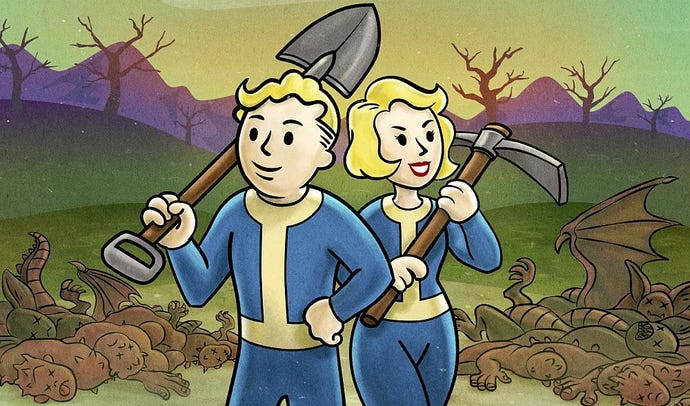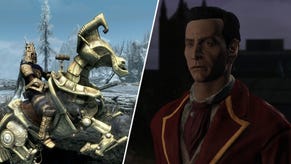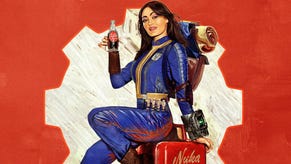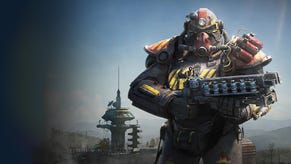Fallout 1st's unlimited stash makes loyal Fallout 76 players feel like second class citizens
It was early morning on October 23 when the bombs dropped, freezing the world as it was so that Halloween decorations sat undisturbed across America for many years afterwards. That was in another timeline, the one that sets the scene for the Fallout games. But Bethesda Game Studios dropped its own bomb on October 23 this year, 2019, obliterating the fragile peace it had fostered with players of its first online game.
Fallout 76 has been in recovery since its catastrophic launch on, yes, October 23 of last year. Just as new life springs in the aftermath of a nuclear strike - thriving in the absence of human interference - Bethesda has worked convincingly to realise its dream of a Fallout game only enhanced, not compromised, by multiplayer.
In a summer IGN interview, studio director Todd Howard acknowledged that the game’s development had been difficult, and that many of those difficulties had ended up on screen. “It’s not how you launch, it’s what it becomes,” he said. “It’s really turned around.”
I’m inclined to agree. Bethesda has delivered a generous program of patches and free DLC throughout 2019. Additions like Survival Mode have revealed the studio’s capacity for experimentation, after decades of design conservatism. A landmark (unfortunately delayed) update, Wastelanders, will reintroduce human NPCs to a world currently civilised only by players and robots - proving Bethesda’s willingness to listen to players even if it means compromising its own plans. I’ve even forgiven the studio for tweaking the green zone for camp construction around plot critical areas, destroying my beautiful river house in the process. Anything in the name of progress.
That recovery is a brittle new plant, though, rooted in grassroots goodwill. Now it’s been damaged. With one hand, Bethesda snatched away the prospect of Wastelanders, delaying the update into next year. And with the other, it offered a paid subscription service, Fallout 1st.
Fallout 76 was just starting to look like good value for money. But Fallout 1st has reignited a still-smouldering perception that its creators are asking for too much - in return for a series on the decline. The subscription unlocks private worlds, unlimited storage, a placeable fast travel point, and a number of cosmetic benefits. Somehow, that comes to $99.99 a year (it works out slightly cheaper in the UK, but only because Brexit is trashing our currency right now). It also doesn’t work as intended.
Given that Fallout 76 is still a game that carries a box price, the sheer amount raises eyebrows higher than a slider in character creation. But it’s not just the idea of the subscription that’s the problem - it’s the contents.
Since launch, item storage has been a significant frustration in Fallout 76. Having doubled down on the Minecraft-like building mechanics introduced in Fallout 4, Bethesda then gave us minimal space to store materials for camp upgrades - not to mention the hoarded hunks of armour and Fat Man nuke launchers found as loot. Over time, the ceiling for storage has been raised bit by bit. The impression was that Bethesda was fighting against tight technical limitations. Yet here in Fallout 1st is the promise of an infinite stash, for those willing to pay for it.
It might be that the subscription is the only thing making that promise possible - a pricey bottleneck that ensures no more than a few players per server are taking advantage of it. Even so, it’s tough to swallow for a community which not so long ago celebrated an increase from 400lbs of storage to 600lbs. The extra fast travel point will come as an unpleasant surprise, too, since players have long been scrounging caps to save up for the occasional teleport across the map.
There’s another sense in which regular players will now be second-class citizens. It was only in June that Fallout 76 development director Chris Mayer said that private servers are “coming sooner than you think,” to cheers and applause from the crowd gathered at QuakeCon. It’s a bitter conclusion, then, for the option to be locked behind a paywall. This was a game that Bethesda had to gently coax single-player RPG devotees into playing. A warm community has sprung up as a result, but there are doubtless many who have been hanging on for the ability to play alone.
The unique Ranger outfit offered to Fallout 1st players is far easier to stomach - but it’s an ironic punchline nonetheless. The armour first appeared in New Vegas, Obsidian’s one and only Fallout entry, which is now viewed as a high water mark for the series. And today, just as Bethesda deals with the radiation from its subscription announcement, Obsidian releases it spiritual successor to that game - a funny and nostalgic RPG named The Outer Worlds. It’s hard to know which October 23 will go down in history as the bigger disaster.












